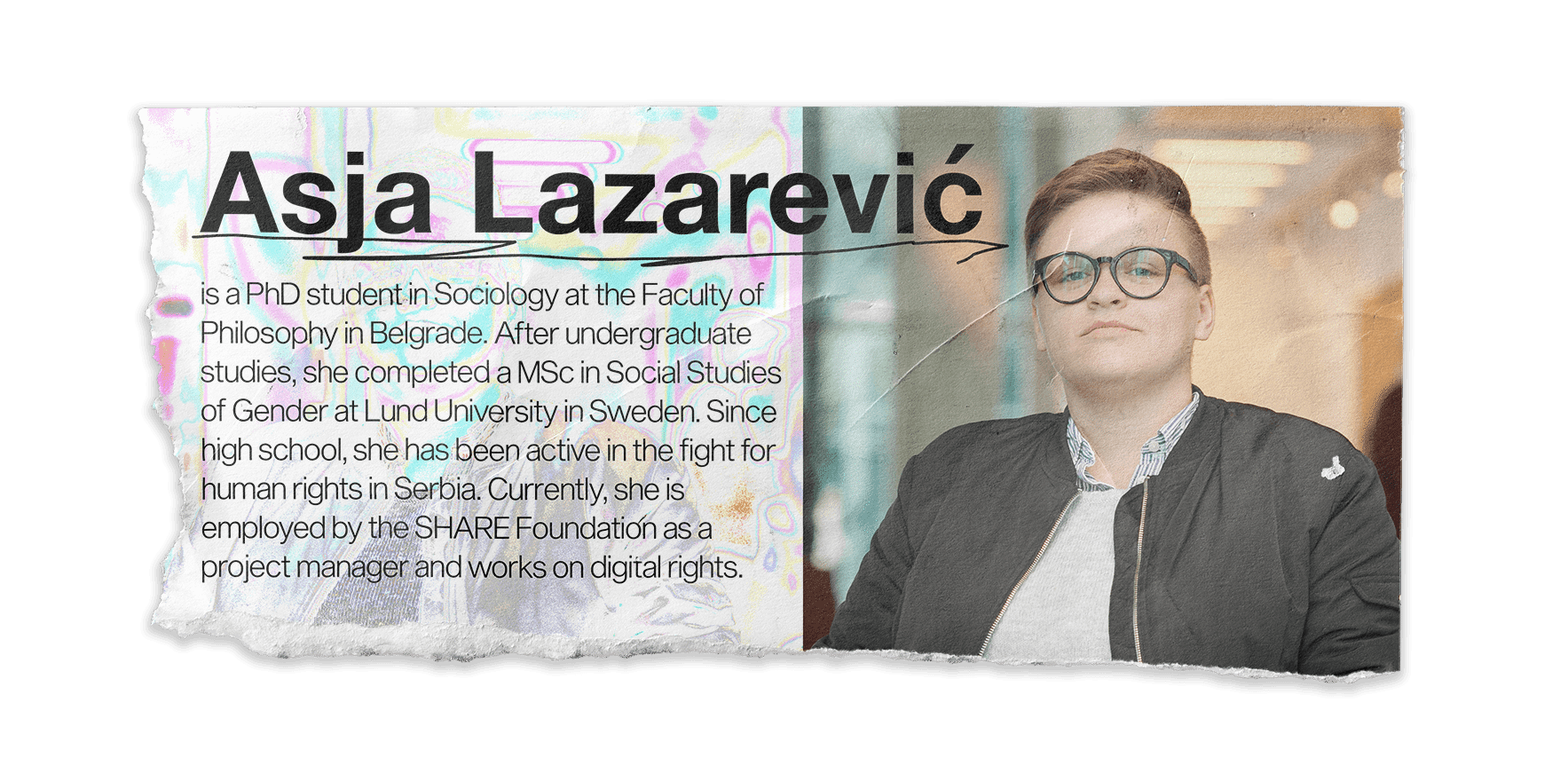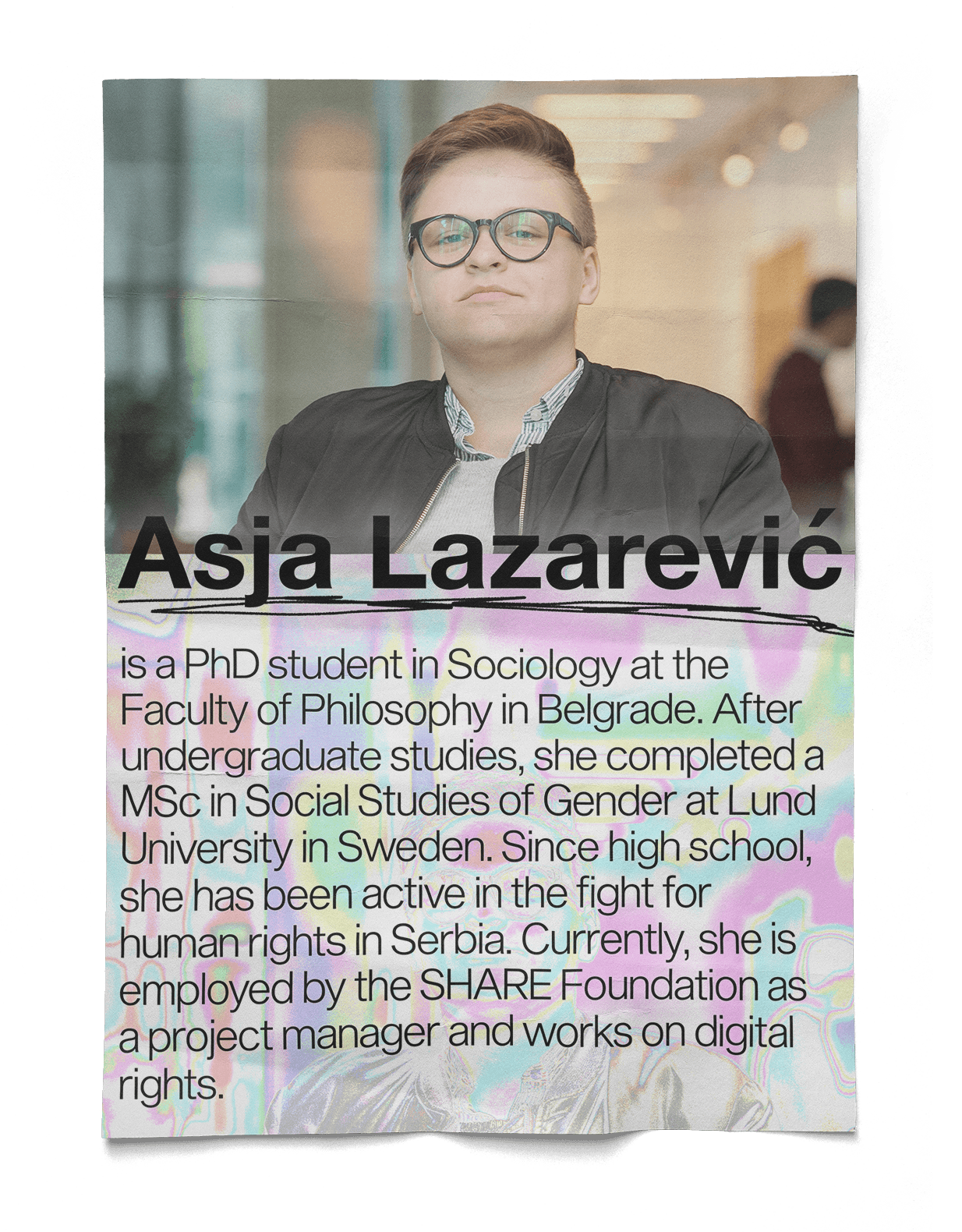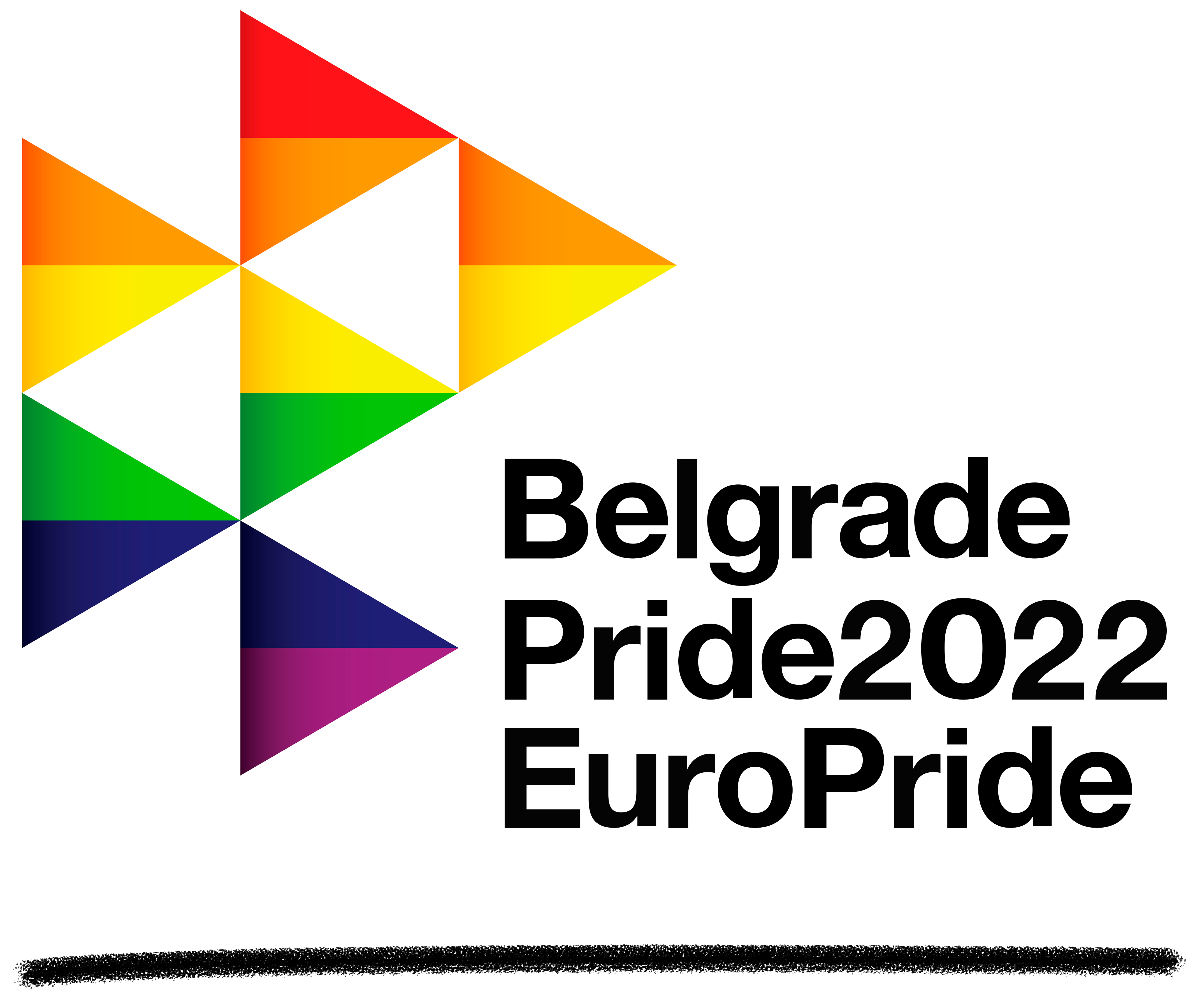Belgrade Pride and EuroPride - It's time for there to be a place for all of us
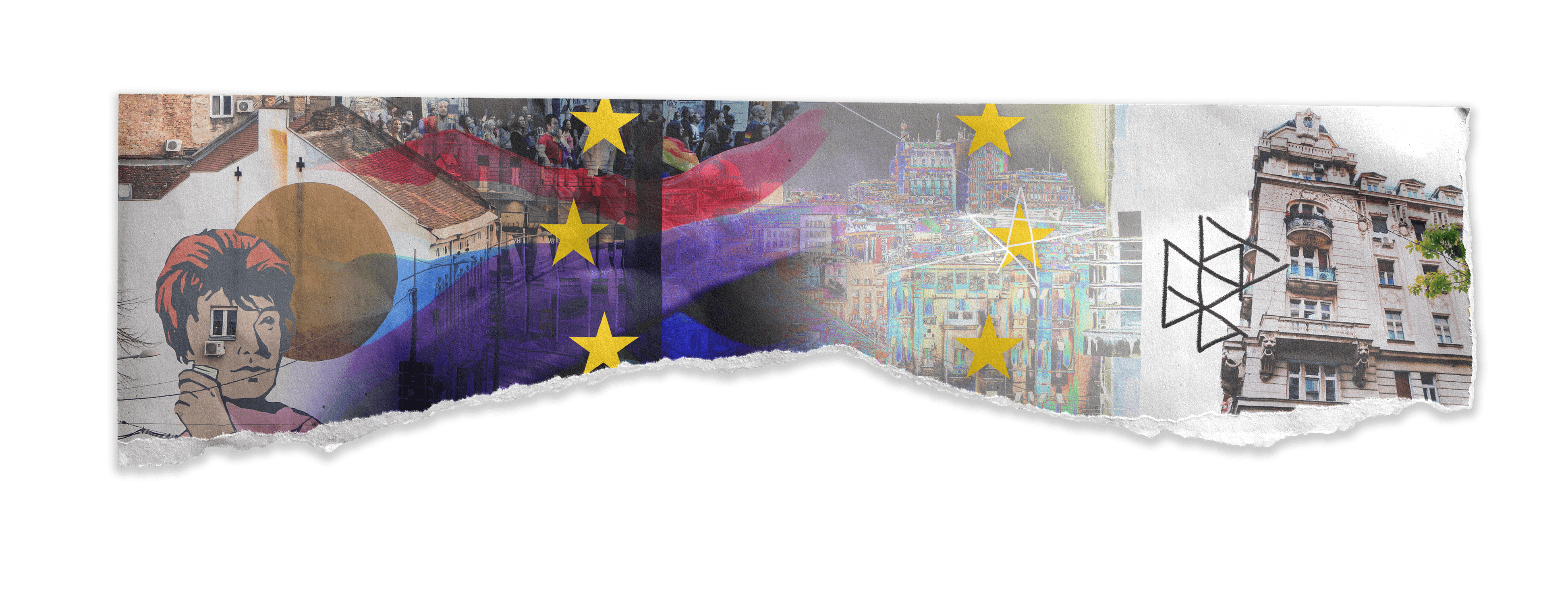
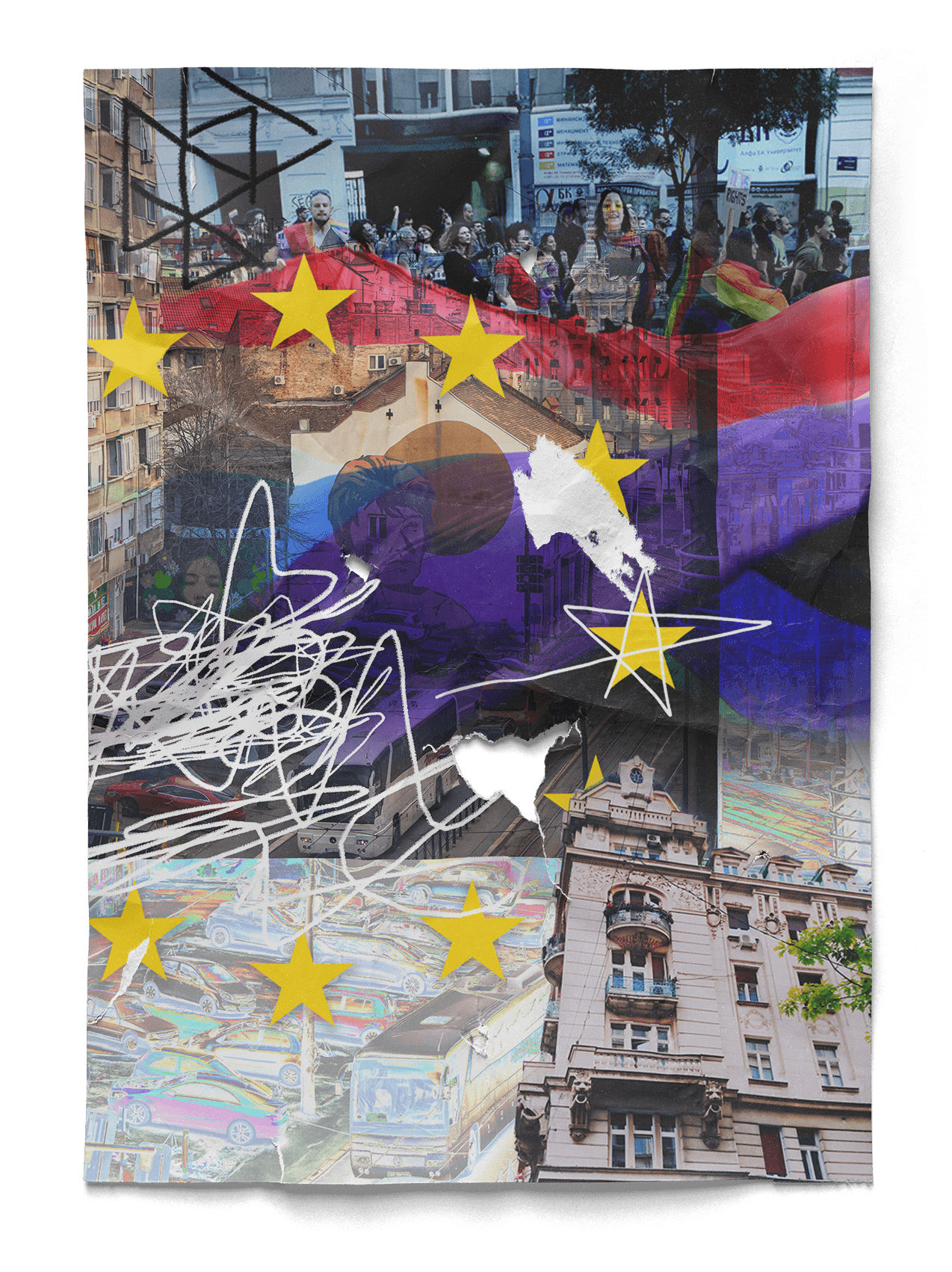
The slogan of the first Belgrade Pride, held in 2001, was: There is a place for all of us. During that event, Pride participants were attacked by members of right-wing organizations, more than 40 people were injured, and the police did nothing to protect members of the LGBTI+ population. More than 20 years after this unfortunate event, Belgrade will host EuroPride, a pan-European event organized every year in another European city, bringing together tens or hundreds of thousands of people from Europe and the rest of the world. The slogan of EuroPride 2022 is: It is time. More than two decades of LGBTI+ activism in Serbia seem to have successfully resulted in Belgrade sending a message that it has a place for all and proudly taking the title of the first city in Southeast Europe to host EuroPride.
Pride is historically the most visible and most effective type of political struggle for LGBTI+ rights, which for decades has been pointing out its unequal treatment through protest walks, increasing its visibility and fighting oppression. Although often presented by the media as an entertainment program, Pride carries with it a complex history, filled with violence and strong political demands, as well as the courage of participants who contributed to reducing homophobia and opened the possibility for an element of entertainment to be included in Pride. The history of Belgrade Pride is a true representation of this fight, and EuroPride, which will be organized in Belgrade from September 12th to 18th, 2022, represents everything that Serbia still has to do to become a place for an equal and dignified life of LGBTI+ people.
After the violence experienced in 2001 when LGBTI+ activists bravely took to the streets of Belgrade, a group of activists had the idea to re-organize the Pride in 2004, but due to escalating violence across the country over unrest in Kosovo, their hopes were torn down. Efforts and hopes were extinguished again in 2009, when Pride was banned by the Ministry of the Interior, due to potential riots in the streets and violent threats that activists were subject to. The following year, 2010, the first Pride for which the state guaranteed security to the participants was held. Although Pride participants were protected and did not have direct contact with violent anti-Pride protestors, 6,000 police officers entered into violent clashes with the same number of hooligans. Hundreds of people were injured, many were arrested, and the city center was ruined. Guided by the experience from 2010, officials banned Pride for three years in a row (2011, 2012, and 2013), on the grounds that they cannot guarantee safety to Pride participants.
The first Pride that occurred without major clashes between police and Pride opponents was held in 2014, and in 2015 Belgrade Pride became a member of the International Pride Network (InterPride) and the European Pride Organizers Association (EPOA), whose members will years later vote for Belgrade Pride to win the bid to organize EuroPride 2022. The presence of the police and the number of incidents at Belgrade Pride was steadily decreasing every year, while in 2017, with the accompanying surprise of the public, Serbia became the first country in Europe whose government is led by an out lesbian. The appointment of Ana Brnabić as Prime Minister of Serbia raised the hopes of LGBTI+ people that progress in the implementation of existing and the adoption of new laws concerning the protection of LGBTI+ human rights will be faster. While taking the role of the Prime Minister, she welcomed a child with her partner, however, same-sex partnerships and adoption by LGBTI+ people are not legally recognized in Serbia, therefore, Brnabić cannot be the child’s legal guardian. The Prime Minister did close to nothing to improve LGBTI+ rights in Serbia, as she focused on, in her words, "on the problems of national importance". Although there are no research findings on how the appointment of Ana Brnabić as Prime Minister affected the level of homophobia in Serbian society, if at all, statements made by her that portray LGBTI+ rights as not being on her priority list have certainly eroded the position of sexual and gender minorities. It was additionally harmful that such statements came from an out member of the LGBTI+ population, which further diminished the importance of the LGBTI+ activists’ demands, as well as their efforts to point out the numerous problems LGBTI+ individuals are facing.
Pride organizations, members of the European Pride Organizers Association, did not agree with Brnabić’s assessment of LGBTI+ rights’ unimportance, and through their democratic vote decided to give license for organizing EuroPride 2022 to Belgrade Pride. Belgrade Pride won more than 70% votes of EPOA members and received a license to hold the EuroPride, beating Barcelona, Dublin, and a joint application of the Portuguese cities of Lisbon and Porto in the process. This move by EPOA members implies that they have recognized the importance of organizing EuroPride in the Western Balkans. The Pride organizations from all over Europe undoubtedly showed solidarity with LGBTI+ activists from the entire Western Balkans, who often fought for their own and other people's freedom without any support, suffering violence and being subject to threats along the way.
The countries of the Western Balkans lag significantly behind the countries of Western Europe when it comes to LGBTI+ human rights. EuroPride in Belgrade is an opportunity to correct this and to send a message that it is time for equal rights of LGBTI+ citizens in the region to become a priority. To achieve equality, activists and the entire LGBTI+ community must enjoy visible support, both from other citizens from all over the region and from those living in countries that may have already guaranteed the LGBTI+ population equal rights. The support of the LGBTI+ population from Europe will add importance to the demands of the local community and consequently contribute to the influence of governments in the region to introduce laws, such as the Law on Same-Sex Partnerships, which can significantly improve the lives of LGBTI+ individuals in the Balkans. EuroPride was created as an event based on the solidarity of LGBTI+ people that transcends national borders and on the recognition of the universal character of the problems that LGBTI+ individuals are fighting against. Violence, discrimination in the workplace, bullying, rejection by family and friends, and other phenomena closely related to homophobia and transphobia, represent parts of the everyday life of LGBTI+ individuals. Such threatening behaviors make sexual and gender minorities feel unsafe in their environment. An entire group of people lives in fear and does not realize its full potential because of it. It is time for this whole group, placed on the margins of the Western Balkans’ societies, to be recognized as an equal part of the society and allowed to contribute to the progress of the entire region.
However, the organization of EuroPride in Belgrade will not only contribute to the local LGBTI+ population and activists but to the entire Serbian society. Organizing EuroPride, as a pan-European LGBTI+ event, provides an opportunity to show that Serbia and the Balkans belong to Europe, from which they are often unjustly excluded. The guests from abroad will get acquainted with the rich cultural scene that Belgrade offers, which will be additionally strengthened from September 12 to 18 by the Pride Week program. In addition, visitors who come from other parts of Europe and the world will get an opportunity to experience the hospitality of Belgraders, who will send a message to the world that it is possible for them to be tolerant and open to diversity. EuroPride 2022 should show that it is time for decades of efforts aimed at achieving LGBTI+ equality in the Western Balkans to finally lead to real progress and the whole society’s true commitment to equality. It is time to make room for all of us throughout the whole region.
